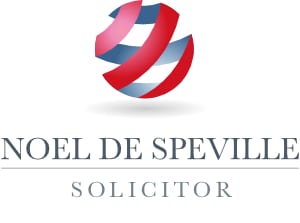Buying Existing Property in France
When purchasing existing property, the initial contract which you may be asked to sign will generally either be a compromis de vente (conditional contract) or a Promesse de vente (option to purchase). One is an agreement by you to purchase under certain conditions and the other is an agreement by the vendor to sell to you under certain conditions.
In most cases, the end result is that you are committed to proceeding with the purchase of a French property, subject to certain conditions.
It is important to note that the notaire‘s fees and duties on existing French property over five years old will amount to roughly 7% of the purchase price. The majority of this amount consists of duties levied by the French Government. The actual fees received by the French notaire amount to about 1%.
Completion will usually take place about 3 or 4 months after the signing of the initial contracts, once the notaire has carried out the Town and Country Planning searches and made sure that there are no rights of compulsory purchase which could apply.
Depending upon the area in which the property is situated and when it was built, the vendor will usually, but not always, be required to supply at their own expense the results of the following expert reports obligatory under French law:
- Termite report: obligatory if the property is in a commune which is deemed by the French authorities to be an area at risk of termite infestation.
- Asbestos: obligatory if the property was built before 1997. If the property being sold is in co-ownership, such a property usually being an apartment, then an expert report regarding asbestos is also required for the common parts of the building.
- Lead poisoning: obligatory if the property was built before 1948 in an area where lead paint was used.
- Natural and technological risks: obligatory.
- Energy efficiency: obligatory.
The following further expert reports are now obligatory in certain circumstances:
- Gas installation: if the property sold has gas central heating
- Electricity installation: if the electric wiring in the property being sold is over 15 years old.
The recent requirement for similar expert reports from vendors in the UK (the “HIPPS” home information pack) would seem to have been driven by the EU legislation, which in turn was most likely derived from this continental system.
Buying French Property Off-Plan
In England, there is currently no VAT payable on new buildings.
However, in France, the reverse is true, and French VAT is payable upon new buildings and buildings which are under 5 years old when sold. It is levied at 19.6%.
The notaire‘s fees and duties on a property being purchased off-plan are levied with a reduced rate, amounting to a total of about 3% to the purchase price. French VAT will also be levied on the tax price.
In some circumstances, particularly with development on some tourist resorts, the French VAT can be recovered from the French authorities, provided that the property is let out under certain conditions. This is usually, but not always, achieved by way of leaseback.
If buying off-plan, you will initially sign a reservation contract (_contrat de reservation_), which is your option to purchase. You will then at some point later, which is usually within a year, be offered a deed of sale, which you need to sign within one month. Failure to do so means you could lose your option to purchase and your deposit. Both the reservation contract and the deed of sale set out the stage payments which you will have to make in accordance with the progress of the building and the construction.
Provided the contracts are properly drafted and contain the appropriate guarantees, the protection afforded to purchasers of off-plan properties in France are very favourable compared to many countries, such as Spain. However, the purchase documentation is substantial and complicated, and so professional assistance can be very helpful.
Buying Land in France to Develop
The purchase of land for building a development can be very lucrative, but it is essential to check that planning permission can be obtained. Furthermore, the contractual documentation needs to be in order to obtain the proper protections.
Many misunderstandings arise between foreign purchasers of French property and French builders simply as the result of a failure to properly communicate and failure to appreciate the difference in the law and practice between England and France.
When buying agricultural land, it is important to check any rights which may operate in favour of the SAFER (_Societe d’Amenagement Foncier Et Rural_, the Society for Land Development and Rural Settlement) and also to check that farmers’ rights have not accrued upon the property in question.


